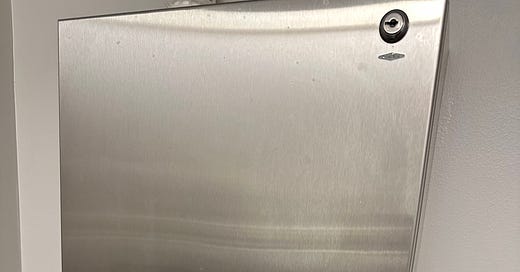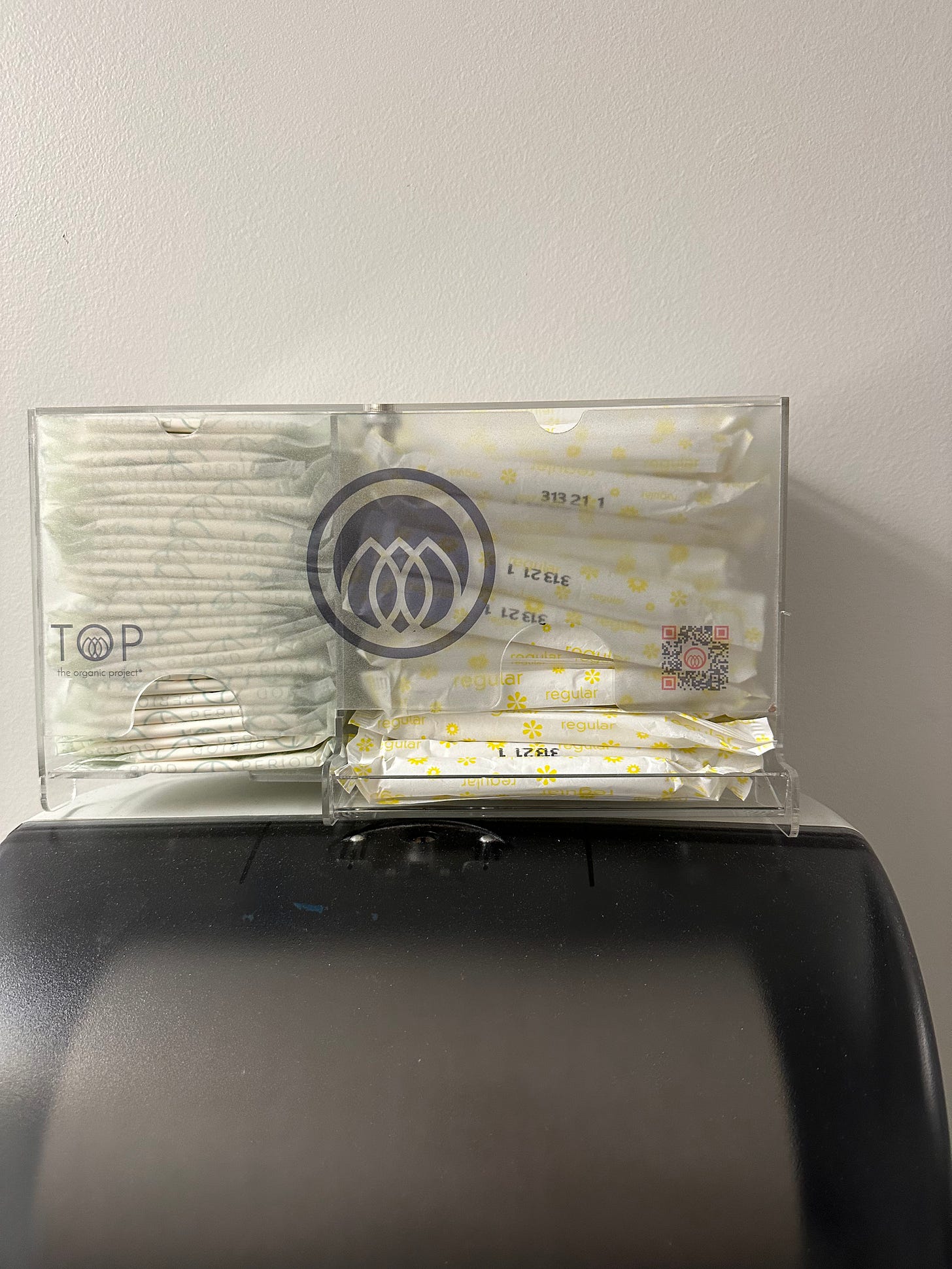Incomplete Arbitrage of Sanitary Products
Thinking economically at all times... including the bathroom.
Last week, I stumbled upon a puzzling economic phenomenon while sitting on the toilet. After completing my game theory problem set in Lower Level Berry, I went into one of the floor’s two gender neutral bathrooms. As I looked around the stall, I noticed a tampon and pad dispenser as well as a container of free tampons and pads. As you can imagine, these are fixtures I ordinarily do not come across. Considering it was rather late in the school day, I was surprised to see that the free products were almost untouched.
How can this be? The abundance of valued goods at a price of zero seems to violate the principle of arbitrage, i.e., profiting off of the difference in prices between markets of homogenous goods. In this case, the Dartmouth bathroom is offering tampons and pads gratis or for around the market rate of 25¢ per unit.1 To be fair, there are significant search costs to discover these free goods—virtually nobody frequents Lower Level Berry besides me. But that explanation is too easy and not particularly interesting. Even if people studied where this bathroom is located, I suspect the phenomenon would have still been observed. Why? I surmise that the tampons and pads offered are similiar in quality to the college’s one ply toilet paper: thin, low-quality, and mildly painful. If this is the case, the lack of arbitrage makes perfect sense; people aren’t snatching the freebies up because you’d be getting what you pay for.
Given my sex and lack of in-depth research on the matter, I defer to the local knowledge of my women readers to explain why so much value (maybe $10?) is being left on the ground/on top of the paper towel dispenser.
Dartmouth’s dispenser pricing is close to the per unit market price of the 34 count Tampax Pearl Tampons sold by Target for $8.





